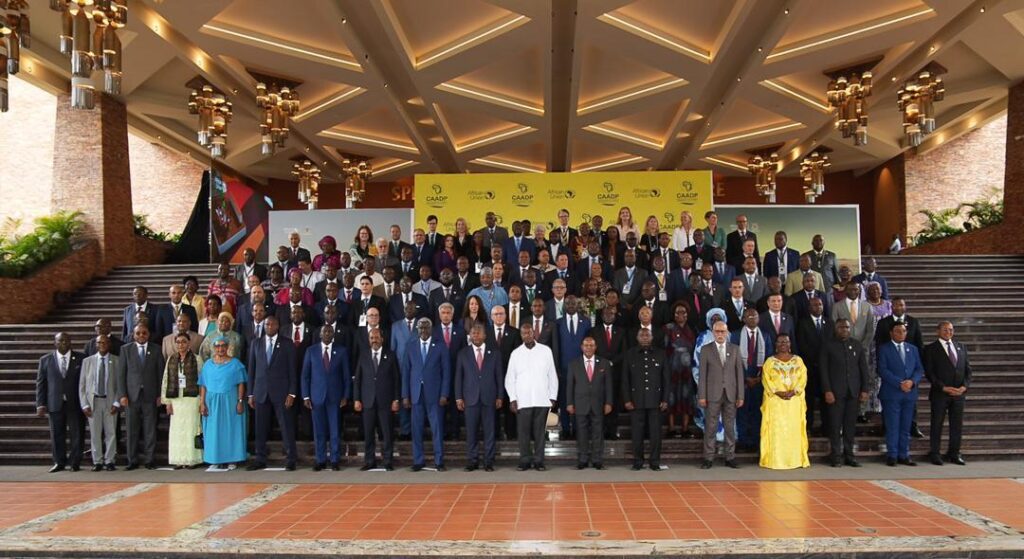
This press release was originally published by the African Union.
The African Union (AU) has recently adopted a new agricultural development strategy that will see the continent increase its agrifood output by 45% by 2035 and transform its agrifood systems as part of its new plan to become food secure in a decade.
The 10-year CAADP Strategy and Action Plan and the Kampala CAADP Declaration on Building Resilient and Sustainable Agrifood Systems in Africa (2026-2035) were ratified at the Extraordinary Summit on the Post-Malabo Comprehensive Africa Agriculture Development Programme (CAADP), held January 9-11, 2025, in Kampala, Uganda.
In the Kampala Declaration, the 55 AU member states outlined six key commitments aimed at transforming and strengthening the continent’s agrifood systems. Recognizing that Africa’s population is expected to reach 2.5 billion by 2050, with a global population of 9.8 billion, the AU heads of state acknowledged the immense challenges this growth poses for food demand.
“We now have a clear roadmap, a theory of change that outlines the pathway to transformation, realistic and implementable strategic objectives, a broad policy scope enhancing food system approaches, and targets that reflect the continent’s aspirations.”
Ambassador Josefa Sacko, African union Commissioner for Agriculture, Rural Development, Blue Economy, and Sustainable Environment
The leaders emphasized the urgent need to significantly boost agricultural production, productivity, food processing, and trade. As part of these commitments, the member states pledged to intensify sustainable food production, agro-industrialization, and trade.
The strategy sets ambitious targets for Africa, including a 50% reduction in post-harvest losses, a tripling of intra-African trade in agrifood products and inputs, and an increase in the share of locally processed food to 35% of the agrifood GDP—all by 2035. This strategy is regarded as a pivotal step toward building resilient and sustainable agrifood systems, providing a clear roadmap for action across the continent.
Ugandan President Yoweri Museveni called for the promotion of value addition of agricultural products, saying that Africa cannot continue importing food to feed its population. “Adding value to agricultural products ensures vertical integration in the agricultural sector—from the garden to the table and from the farm to the wardrobe,” Museveni stated.
Moussa Faki Mahamat, AU Chairperson, acknowledged the slow progress since CAADP implementation began in 2014 within the framework of the Malabo Declaration but praised the Kampala Declaration’s comprehensive strategy as a turning point.
Additionally, Ambassador Josefa Sacko, AU Commissioner for Agriculture, Rural Development, Blue Economy, and Sustainable Environment, said the Kampala Declaration was different from the Malabo and Maputo declarations in that it included a comprehensive strategy and action plan.
“This will allow member states to begin implementing immediately after the adoption,” she said. “We now have a clear roadmap, a theory of change that outlines the pathway to transformation, realistic and implementable strategic objectives, a broad policy scope enhancing food system approaches, and targets that reflect the continent’s aspirations.”
Norway’s State Minister and representative of development partners, Bjørg Sandkjær, noted that Africa’s new strategy emphasizes the critical role of agrifood systems in economic growth and ensuring food security and improved nutrition for all.
The Kampala Declaration represents a transformative milestone in Africa’s journey toward resilient and sustainable agrifood systems. By addressing the challenges of a rapidly growing population and committing to bold, actionable strategies, it will pave the way for a food-secure, self-reliant, and prosperous Africa.




